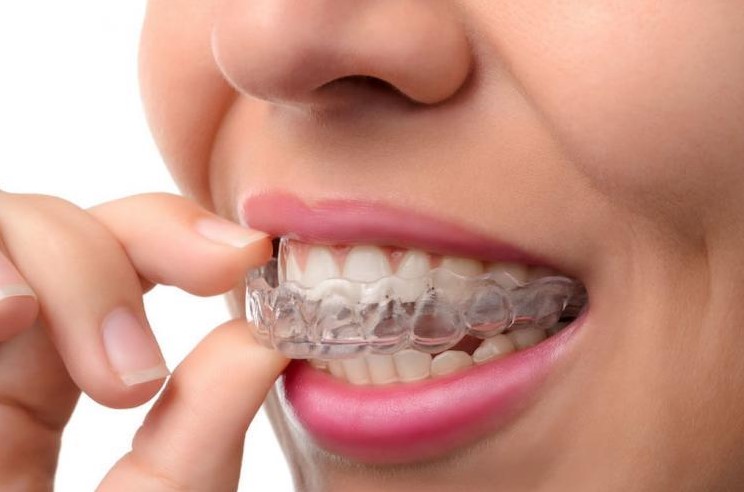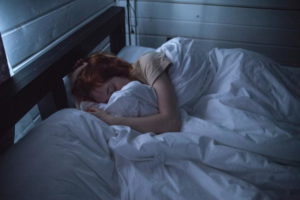While it may seem harmless, regularly clenching teeth while awake and/or asleep can cause serious oral health complications in the long run. Teeth clenching is a pretty common habit, many people unconsciously clench their jaws and grind their teeth at night (bruxism) and during the day (daytime bruxism). However, if you often experience morning headaches, sore facial and jaw muscles, and tooth sensitivity, then you may be suffering from bruxism.
Bruxism often results in earache, facial pain, headaches, pain and stiffness of the jaw, disrupted sleep, and of course, worn-out teeth. This can lead to other problems such as tooth sensitivity, gum disease, or worse tooth loss.
How do you address this bad habit? Here are some tips that can help manage the problem.
The first step
Bruxism is mostly caused by emotional stress or anxiety. While doctors are yet to pinpoint the exact reason why some people clench or grind their teeth excessively, they believe that addressing stress and minimizing exposure to anxiety-causing situations are the most important first steps for treatment.
How to Stop Clenching Teeth at Night
Wear a custom-fit mouth guard
The easiest and fastest way to address your bruxism is to ask your dentist for a custom-fit mouthguard. While this may not stop your bruxism completely, it will protect your teeth from further damage. It will provide cushion for your jaw to prevent all sorts of pain associated with teeth clenching.
Also, while there are many off-the-shelf mouth guards you can find in drug stores, a custom-fit works differently. OTC mouth guards may look similar, and are often used by athletes in different sports like boxing, football, basketball, among others. However, the “boil and bite” method doesn’t always mold in your mouth well. The mouthguard can feel high or too long, and this can hurt your gums. Also, any movement in your jaw can dislodge the mouthguard in place during sleep, and will no longer be effective in protecting your teeth.
A custom-fit mouthguard on the other hand, are personalized and molded perfectly for your mouth, teeth, and jaw shape. Your dentist can adjust the thickness and firmness of the rubber to provide you comfort and complete protection.
Correct any bite abnormalities
In many cases, people unknowingly grind their teeth due to abnormal bite (overbite, underbite, etc), such as misaligned teeth. This can be rectified by your dentist with proper procedure. If this is the case, then your dentist may recommend using braces or invisalign to gradually correct the overbite or underbite.
For teeth damaged by chewing long term teeth clenching, crowns could help alleviate the bruxism.
Relax before your bedtime
Treat yourself with a warm bath to relax your body, especially your jaw muscles. Use a heating pad or wet towel on your jaw to relax the surrounding muscles.
Avoid stimulants like electronic devices before bedtime. Drink a warm soothing beverage, such as herbal tea. Make sure it is non-caffeinated.
How to Stop Clenching Teeth During the Day
Do some jaw-relaxing exercises
For times where you cannot avoid stressful situations, especially at work, it is good to know some jaw relaxing exercises. Here’ a quick tip:
- Gently close your lips and keep the top and bottom of your teeth from touching
- Press your tongue to the roof of your mouth without touching the teeth
- Hold the position as long as possible
Another exercise will help with your jaw movement
- Place your hands on your temporomandibular joint (TMJ, the joint that connects your lower jaw to your skull), then slowly open your mouth
- Hold your mouth open for up to 10 seconds before slowly closing it
- Perform this exercise for 10 minutes, at least three times a day
Practice mindfulness, learn to relax
Be more conscious with your teeth clenching. If you feel you have been grinding your teeth all day, then practice mindfulness and relax. There may be specific times during the day where your clenching is more pronounced. Learn to recognize the cues and be mindful of how your jaw joint feels in certain situations or times of the day. When you recognize it, stop what you are doing and relax your jaw.
Chew on nothing but food, avoid chewy foods
If you chew on gum all day or if you love chewing ice after you finish your cold beverage, then you should definitely stop those if you want to address your bruxism. These repetitive motions can cause stress on your jaw joint and muscles, and triggers teeth clenching while awake.
The same goes with chewy foods like steak, popcorn, and more. Chewy food can wear out your jaw.
Though common, bruxism is treatable. However, to save your jaw joint and teeth, it is best to treat it early. If you often feel the symptoms of bruxism, especially pain, then it is best to see your dentist. They can examine your teeth, and depending on the suspected cause, will treat you for any underlying conditions.


























